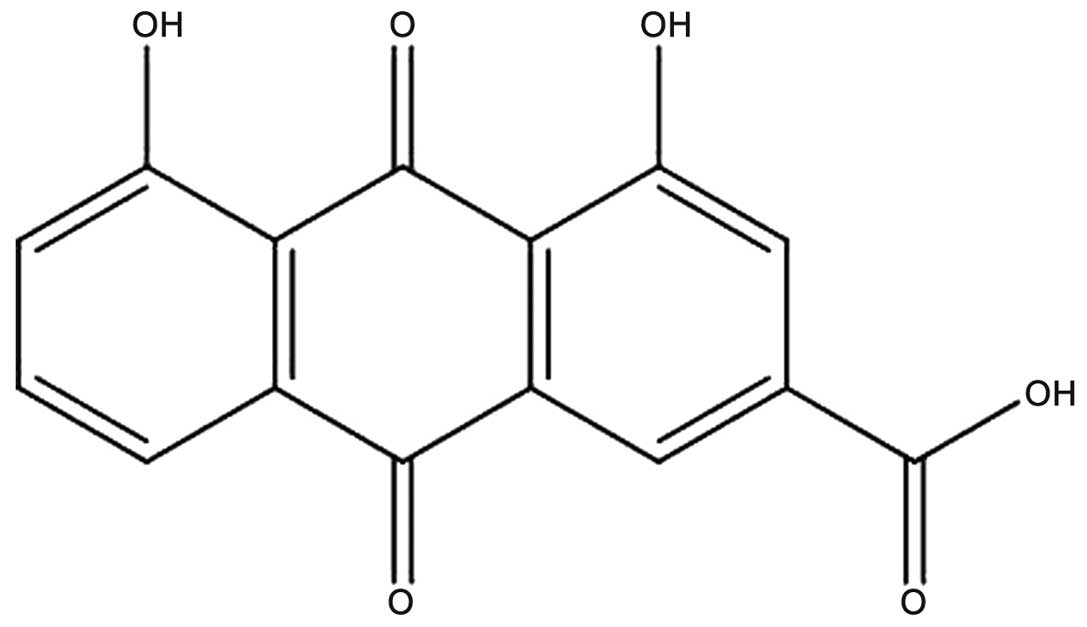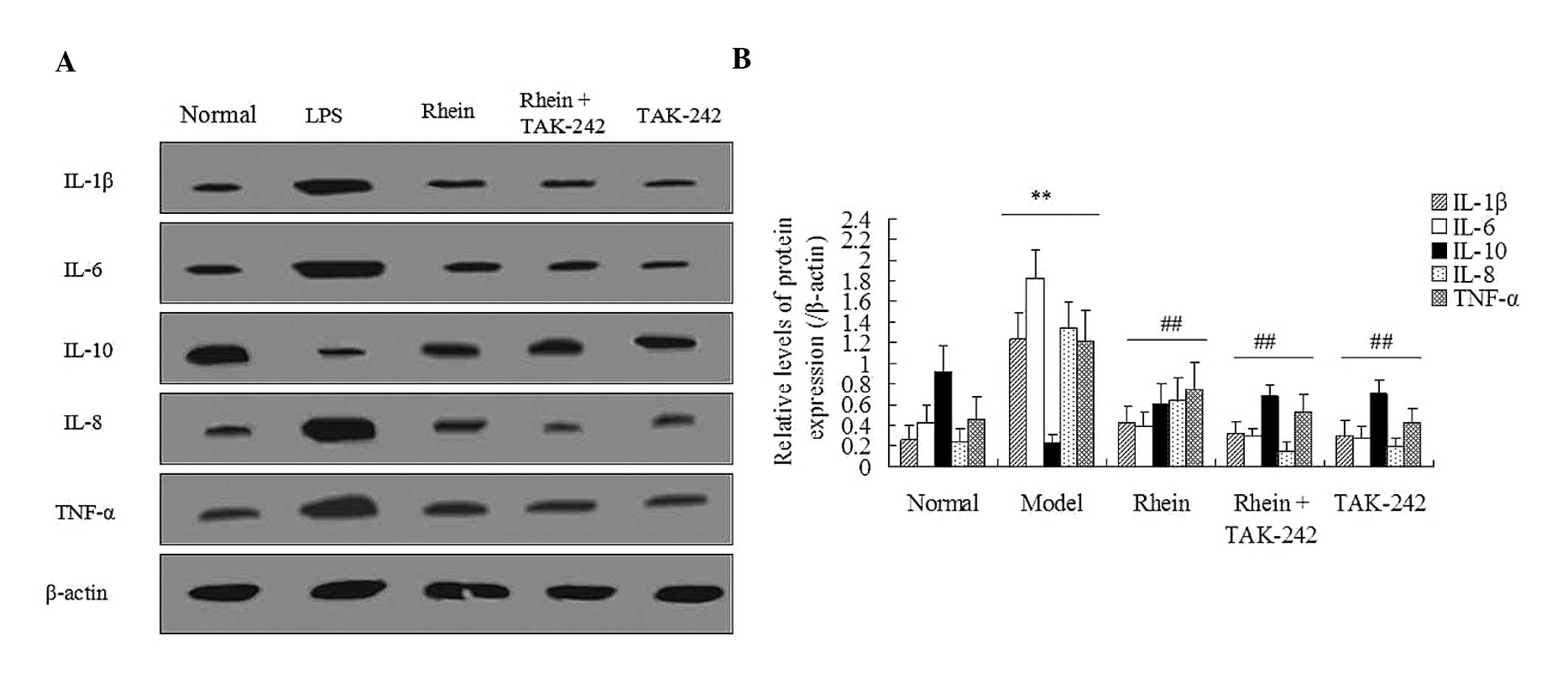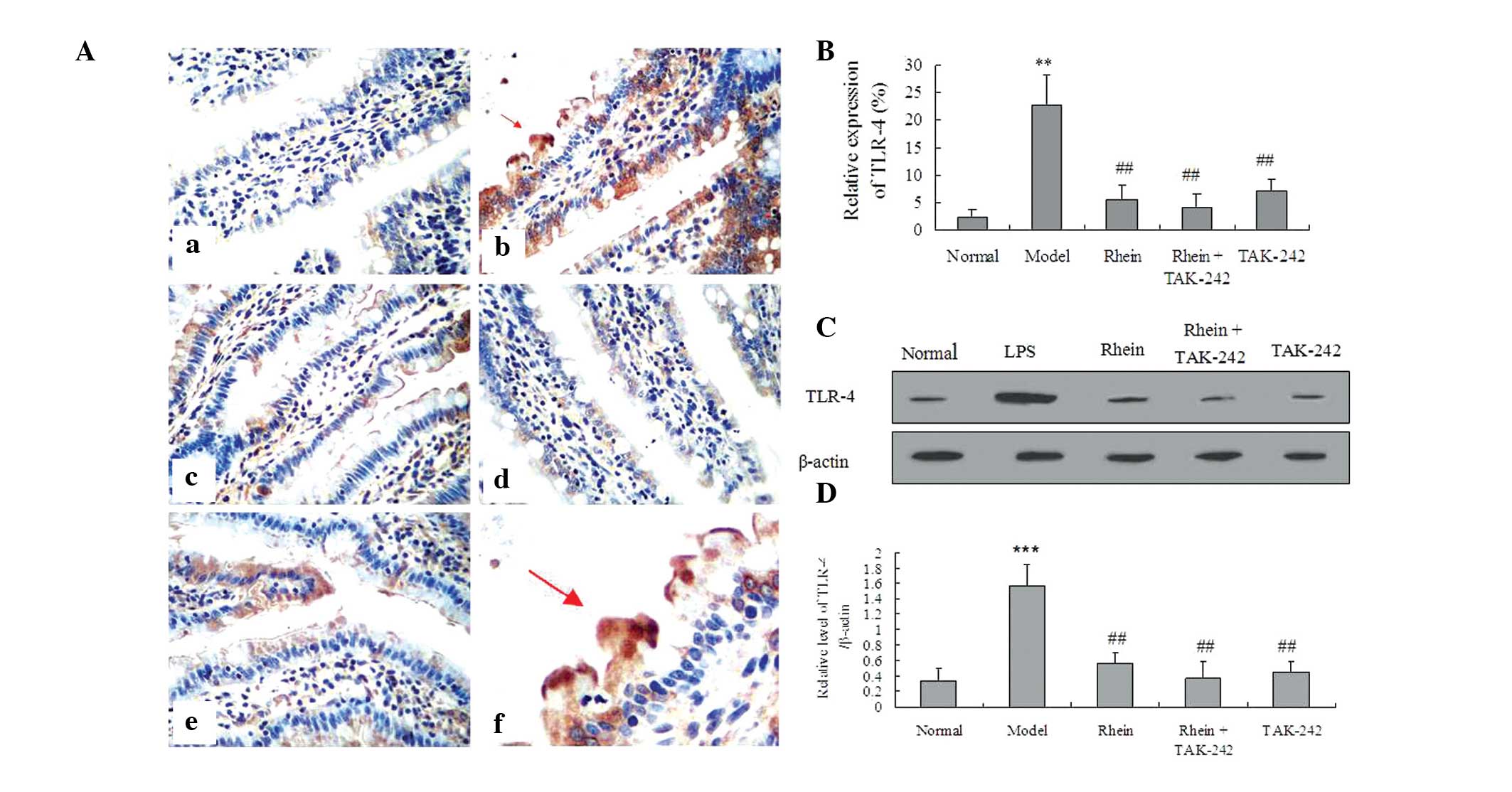|
1
|
Rajkumari N, Mathur P, Sharma S, Gupta B,
Bhoi S and Misra MC: Procalcitonin as a predictor of sepsis and
outcome in severe trauma patients: A prospective study. J Lab
Physicians. 5:100–108. 2013. View Article : Google Scholar
|
|
2
|
Duran-Bedolla J, Montes de Oca-Sandoval
MA, Saldaña-Navor V, Villalobos-Silva JA, Rodriguez MC and
Rivas-Arancibia S: Sepsis, mitochondrial failure and multiple organ
dysfunction. Clin Invest Med. 37:E58–E69. 2014.PubMed/NCBI
|
|
3
|
Hatakeyama N and Matsuda N: Mechanisms of
inflammatory response and organ dysfunction: Organ-protective
strategy by anesthetics. Curr Pharm Des. Feb 3–2014.Epub ahead of
print. View Article : Google Scholar
|
|
4
|
Luo HM, Du MH, Lin ZL, et al: Valproic
acid treatment inhibits hypoxia-inducible factor 1α accumulation
and protects against burn-induced gut barrier dysfunction in a
rodent model. PLoS One. 8:e775232013. View Article : Google Scholar
|
|
5
|
Fink MP: Intestinal epithelial
hyperpermeability: Update on the pathogenesis of gut mucosal
barrier dysfunction in critical illness. Curr Opin Crit Care.
9:143–151. 2003. View Article : Google Scholar : PubMed/NCBI
|
|
6
|
Chatterjee N, Das S, Bose D, Banerjee S,
Jha T and Saha KD: Leishmanial lipid suppresses the bacterial
endotoxin-induced inflammatory response with attenuation of tissue
injury in sepsis. J Leukoc Biol. 96:325–336. 2014. View Article : Google Scholar : PubMed/NCBI
|
|
7
|
Fatemi K, Radvar M, Rezaee A, et al:
Comparison of relative TLR-2 and TLR-4 expression level of disease
and healthy gingival tissue of smoking and non-smoking patients and
periodontally healthy control patients. Aust Dent J. 58:315–320.
2013. View Article : Google Scholar : PubMed/NCBI
|
|
8
|
Musie E, Moore CC, Martin EN and Scheld
WM: Toll-like receptor 4 stimulation prior to or after
Streptococcus pneumoniae induced sepsis improves survival and is
dependent on T-cells. PLoS One. 9:e860152014. View Article : Google Scholar
|
|
9
|
Yang JC, Wu SC, Rau CS, et al: Inhibition
of the phosphoinositide 3-kinase pathway decreases innate
resistance to lipopolysaccharide toxicity in TLR4 deficient mice. J
Biomed Sci. 21:202014. View Article : Google Scholar : PubMed/NCBI
|
|
10
|
Mascolo N, Autore G, Izzo AA, Biondi A and
Capasso F: Effects of senna and its active compounds rhein and
rhein-anthrone on PAF formation by rat colon. J Pharm Pharmacol.
44:693–695. 1992. View Article : Google Scholar : PubMed/NCBI
|
|
11
|
Raimondi F, Santoro P, Maiuri L, et al:
Reactive nitrogen species modulate the effects of rhein, an active
component of senna laxatives, on human epithelium in vitro. J
Pediatr Gastroenterol Nutr. 34:529–534. 2002. View Article : Google Scholar : PubMed/NCBI
|
|
12
|
Peng SN, Zeng HH, Fu AX, Chen XW and Zhu
QX: Effects of rhein on intestinal epithelial tight junction in IgA
nephropathy. World J Gastroenterol. 19:4137–4145. 2013. View Article : Google Scholar : PubMed/NCBI
|
|
13
|
Zhang Q, Ma YM, Wang ZT and Wang CH:
Differences in pharmacokinetics and anti-inflammatory effects
between decoction and maceration of Sanhuang Xiexin Tang in rats
and mice. Planta Med. 79:1666–1673. 2013. View Article : Google Scholar : PubMed/NCBI
|
|
14
|
Guo MZ, Li XS, Xu HR, Mei ZC, Shen W and
Ye XF: Rhein inhibits liver fibrosis induced by carbon
tetrachloride in rats. Acta Pharmacol Sin. 23:739–744.
2002.PubMed/NCBI
|
|
15
|
Ni JQ, Ouyang Q, Lin L, et al: Role of
toll-like receptor 4 on lupus lung injury and atherosclerosis in
LPS-challenge ApoE−/−mice. Clin Dev Immunol.
2013:4768562013. View Article : Google Scholar
|
|
16
|
Kim WH, Song HO, Jin CM, et al: The
methanol extract of Azadirachta indica A. juss leaf protects mice
against lethal endotoxemia and sepsis. Biomol Ther (Seoul).
20:96–103. 2012. View Article : Google Scholar
|
|
17
|
Chiu CJ, McArdle AH, Brown R, Scott HJ and
Gurd FN: Intestinal mucosal lesion in low-flow states. I. A
morphological, hemodynamic, and metabolic reappraisal. Arch Surg.
101:478–483. 1970. View Article : Google Scholar : PubMed/NCBI
|
|
18
|
Cordioli RL, Cordioli E, Negrini R and
Silva E: Sepsis and pregnancy: Do we know how to treat this
situation? Rev Bras Ter Intensiva. 25:334–344. 2013. View Article : Google Scholar
|
|
19
|
Van Leeuwen PA, Boermeester MA, Houdijk
AP, et al: Clinical significance of translocation. Gut. 35(Suppl
1): 28–S34. 1994. View Article : Google Scholar
|
|
20
|
Cross AS, Sidberry H and Sadoff JC: The
human antibody response during natural bacteremic infection with
gram-negative bacilli against lipopolysaccharide core determinants.
J Infect Dis. 160:225–236. 1989. View Article : Google Scholar : PubMed/NCBI
|
|
21
|
Piazza O, Pulcrano G, Fiori PL, et al:
Toll-like receptor kinetics in septic shock patients: A preliminary
study. Int J Immunopathol Pharmacol. 25:425–433. 2012.PubMed/NCBI
|
|
22
|
Drago-Serrano ME, de la Garza-Amaya M,
Luna JS and Campos-Rodríguez R: Lactoferrin-lipopolysaccharide
(LPS) binding as key to antibacterial and antiendotoxic effects.
Int Immunopharmacol. 12:1–9. 2012. View Article : Google Scholar
|
|
23
|
Verstak B, Stack J, Ve T, et al: The TLR
signaling adaptor TRAM interacts with TRAF6 to mediate activation
of the inflammatory response by TLR4. J Leukoc Biol. 96:427–436.
2014. View Article : Google Scholar : PubMed/NCBI
|
|
24
|
Gao Y, Chen X, Fang L, et al: Rhein exerts
pro- and anti-inflammatory actions by targeting IKKβ inhibition in
LPS-activated macrophages. Free Radic Biol Med. 72:104–112. 2014.
View Article : Google Scholar : PubMed/NCBI
|
|
25
|
Sautner T, Wessely C, Riegler M, et al:
Early effects of catecholamine therapy on mucosal integrity,
intestinal blood flow, and oxygen metabolism in porcine endotoxin
shock. Ann Surg. 228:239–248. 1998. View Article : Google Scholar : PubMed/NCBI
|
|
26
|
Redondo AC, Ceccon ME, Silveira-Lessa AL,
et al: TLR-2 and TLR-4 expression in monocytes of newborns with
late-onset sepsis. J Pediatr (Rio J). 90:472–478. 2014. View Article : Google Scholar
|
|
27
|
Wang Q, Wang JJ, Boyce S, Fischer JE and
Hasselgren PO: Endotoxemia and IL-1 beta stimulate mucosal IL-6
production in different parts of the gastrointestinal tract. J Surg
Res. 76:27–31. 1998. View Article : Google Scholar : PubMed/NCBI
|
|
28
|
Ueda Y, Kayama H, Jeon SG, et al:
Commensal microbiota induce LPS hyporesponsiveness in colonic
macrophages via the production of IL-10. Int Immunol. 22:953–962.
2010. View Article : Google Scholar : PubMed/NCBI
|
|
29
|
Paul G, Khare V and Gasche C: Inflamed gut
mucosa: Downstream of interleukin-10. Eur J Clin Invest. 42:95–109.
2012. View Article : Google Scholar
|
|
30
|
Im E, Riegler FM, Pothoulakis C and Rhee
SH: Elevated lipopolysaccharide in the colon evokes intestinal
inflammation, aggravated in immune modulator-impaired mice. Am J
Physiol Gastrointest Liver Physiol. 303:G490–G497. 2012. View Article : Google Scholar : PubMed/NCBI
|
|
31
|
Chung YW, Choi JH, Oh TY, Eun CS and Han
DS: Lactobacillus casei prevents the development of dextran
sulphate sodium-induced colitis in Toll-like receptor 4 mutant
mice. Clin Exp Immunol. 151:182–189. 2008. View Article : Google Scholar
|
|
32
|
Teo JD, Macary PA and Tan KS: Pleiotropic
effects of Blastocystis spp. Subtypes 4 and 7 on ligand-specific
toll-like receptor signaling and NF-κB activation in a human
monocyte cell line. PLoS One. 9:e890362014. View Article : Google Scholar
|
|
33
|
Lee JH, Lee B, Lee HS, et al:
Lactobacillus suntoryeus inhibits pro-inflammatory cytokine
expression and TLR-4-linked NF-kappaB activation in experimental
colitis. Int J Colorectal Dis. 24:231–237. 2009. View Article : Google Scholar
|


















